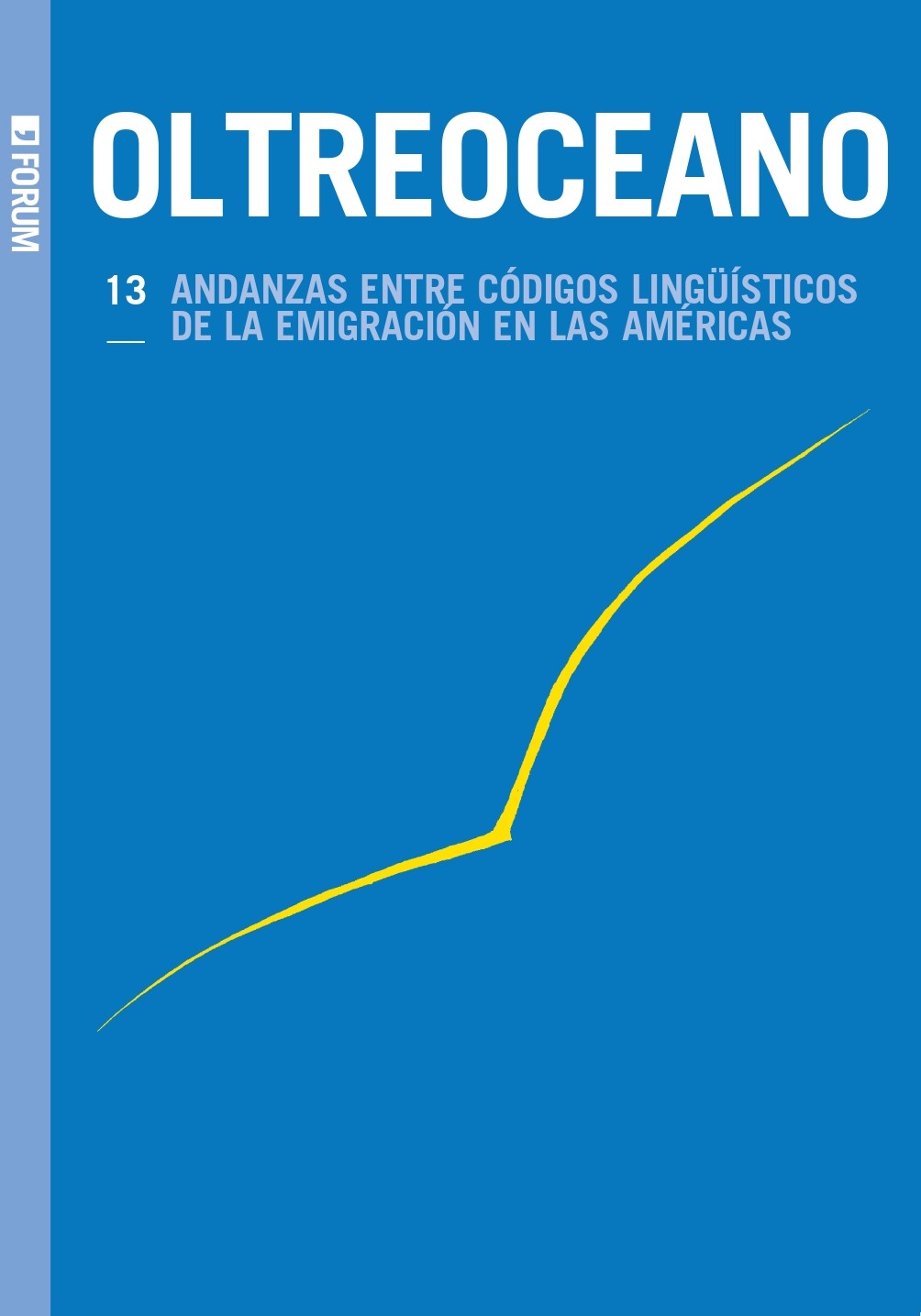Viaje académico o “volverse latinoamericano” en Estados Unidos en El camino de Ida, de Ricardo Piglia
Keywords:
viaje, diario, identidad, lenguaAbstract
En este ensayo me propongo estudiar los modos que asume el viaje y su narración en El camino de Ida (2013), de Ricardo Piglia, donde se cuentan las peripecias amorosas, políticas y detectivescas de un profesor argentino invitado en una universidad de EEUU. La novela tiene como personaje central a Emilio Renzi, quien a partir de la lectura de escritores bilingües y biculturales como William Henry Hudson y Joseph Conrad, reflexiona sobre la identidad argentina y norteamericana a partir de la extranjería lingüística del sujeto escritor migrante, el activismo y el academicismo.
Academic Journey or “becoming Latin American” in the United States in El camino de Ida, by Ricardo Piglia
In this essay, I intend to study the ways that travel and its narration take shape in El camino de Ida (2013), by Ricardo Piglia, novel that tells the amorous, political and detective incidences of a visiting Argentine professor at a US university. Based on his readings of bilingual and bicultural writers such as William Henry Hudson and Joseph Conrad, the main character, Emilio Renzi, reflects on the Argentine and American identity from the linguistic strangeness of the immigrant writer, from the position of an intellectual in the tension between activism and academicism.
Viaggio accademico o “diventare latinoamericano” negli Stati Uniti in El viaje de Ida di Ricardo Piglia
In questo saggio intendo esaminare le modalità del viaggio e della sua narrazione ne El camino de Ida (2015) di Ricardo Piglia, dove si raccontano le peripezie amorose, politiche e investigatrici di un professore argentino invitato in una università degli Stati Uniti. Il romanzo ha come personaggio centrale Emilio Renzi che, a partire dalla lettura di scrittori bilingui e biculturali come William Henry Hudson e Joseph Conrad, riflette sull’identità argentina e nordamericana iniziando con l’estraneità linguistica del soggetto scrittore migrante, per giungere all’attivismo e all’accademicismo.
Downloads
References
Borges, J. L. (1949/08/03): Nota sobre The Purple Land. La nación, p. 1.
Canby, H. S. (1924): A Poet Scientist. The Literary Review of the New York Evening Post, 2, pp. 483-484.
Fernando Pozzo, et al. (1940): Antología de Guillermo Enrique Hudson con estudios críticos sobre su Vida y su Obra. Buenos Aires: Losada.
Ford Madox. F. (1966): Thus to Revisit: Some Reminiscences. New York: Octagon.
Garnett, E. (1920): Una nota sobre el genio de Hudson. Repertorio americano, pp. 103-111.
Gómez, L. & Castro-Klarén, S. (Eds.) (2012): Entre Borges y Conrad: estética y territorio en William Henry Hudson. Madrid: Iberoamericana Vervuert.
Hudson, W. H. (1980): La tierra purpúrea; Allá lejos y hace tiempo. J. Franco (Ed.). Caracas: Biblioteca Ayacucho.
Hudson, W. H. (2006): Mansiones verdes. Barcelona: Acantilado.
Latour, B. (2001): La esperanza de Pandora. Ensayos sobre la realidad de los estudios de la ciencia. Barcelona: Gedisa.
Downloads
Published
How to Cite
Issue
Section
License

This work is licensed under a Creative Commons Attribution-NonCommercial-ShareAlike 4.0 International License.
The authors undertake to comply with the following conditions, which are considered accepted at the time of submission of their contributions.
The sending of a text implies that it is unpublished and not submitted to be published elsewhere.
1. If accepted, the author shall confer on the publisher the right to publish and distribute it both in paper form and in the online electronic edition. The published articles will be downloadable and made available in open access.
2. Provided that it correctly indicates that the first publication took place in the journal Oltreoceano. Rivista sulle migrazioni the author has the right to: a) reproduce the article in separate extracts or collected in a volume; b) publish the article on their personal website or teaching site provided that these sites are of a non-commercial nature; c) deposit the article in online archives of a non-commercial nature, linked to the institution they belong to or as part of projects for the non-commercial dissemination and open access of scientific works.
The use of contributions by third parties, for commercial or otherwise unauthorized purposes, is not allowed. The publisher declines all responsibility for the unauthorized use of the material published in the journal.












